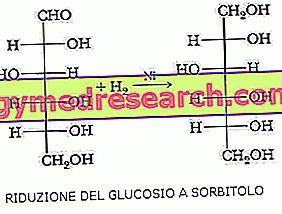Generality
Marseille soap is a solid soap originating in France, considered the direct descendant of Aleppo soap.

Marseille soap - manufactured for the first time in the homonymous French city - is still considered an excellent product with which to take care of your personal hygiene and with which you can also clean parts of the house and laundry.
The original recipe for the preparation of Marseille soap involves the use of a single type of vegetable oil in well-defined proportions, ie olive oil, preferably extra virgin. Unfortunately, however, this recipe has undergone some changes over the years and, currently, finding the real Marseille soap is quite difficult.
What is Marseille soap?
Marseille soap is a solid soap with a rather hard consistency, green or yellow in color and with a typical and characteristic odor, defined by many as "clean smell".
The real Marseille soap is a 100% natural solid detergent, free of synthetic substances or chemical additives.
Background
Marseille soap began to be produced in France starting, approximately, from the 12th century, when the crusaders imported Aleppo soap into Europe, made with olive oil and laurel oil.
After the discovery and the enormous success achieved by Aleppo soap, the Marseillais craftsmen began to produce a similar soap using only the ingredients available in their land: extra virgin olive oil and salicornia ash.
However, although soap production had begun many years ago, the first official soap factories in Marseilles made their appearance only from the fourteenth century. From that moment on, Marseille soap gained fame and success also outside of France and the city became famous for the production of its fine solid detergents.
Production
Traditional Method for the Production of Marseille Soap
As mentioned, the original recipe for the preparation of real Marseille soap included the use of easily available ingredients in French Provence, that is extra virgin olive oil and lye obtained from salicornia ashes .
Thanks to the alkaline substances present in the lye, the saponification of extra virgin olive oil was carried out which - according to tradition - had to be present in concentrations of 72% . Always according to tradition, the entire manufacturing process - from saponification to the cutting of soap blocks - had to be carried out by soap makers strictly by hand.
Deepening: saponification
Saponification is a chemical reaction that consists of the basic hydrolysis of one or more esters. In the detail of Marseille soap production, esters are represented by the triglycerides contained in the extra virgin olive oil and the base is represented by the alkaline substances present in the lye.
The manufacture of Marseille soap using the traditional method was divided into the following phases:
- The extra virgin olive oil was placed inside a large cauldron, to which was added a mixture of water from the Mediterranean Sea and lye obtained from the ashes of salicornia.
- The mixture thus obtained had then to be heated for several days so as to allow the hot saponification to take place.
- At the end of the reaction, once the soap paste was obtained, the heating was interrupted and the mixture left to rest.
- Then the soap was poured into special molds, left to harden (but not solidify completely), cut into blocks and stamped.
- Finally, the soap was solidified and dried completely.
Deepening: the salicornia lye
Lye is an alkaline substance that is obtained by boiling the wood ash in water for at least two hours.
The traditional method for the production of Marseille soap included the exclusive use of salicornia ash, a plant that grows in saline, brackish or alkaline soils and is widely distributed in the Mediterranean regions.
The lye obtained from it contained compounds that allowed the saponification of extra virgin olive oil, such as sodium carbonate (a salt also known as "soda" which, dissolved in water, gives rise to basic hydrolysis, giving the solution final an alkaline pH).
Variations to the Traditional Method for the Production of Marseille Soap
With the passage of time and with the increase in the exchange of goods, vegetable oils from different parts of the world began to arrive in Marseilles, such as palm oil and coconut oil (or copra oil).
Between the end of the 19th century and the beginning of the 20th century, the Marseille soap recipe underwent some changes and the extra virgin olive oil was replaced with the aforementioned vegetable oils. The French chemist François Merklen, in 1906, proposed a new recipe for the production of the renowned French soap, introducing new ingredients and new proportions, such as:
- 63% of palm oil (or 63% of coconut oil);
- 9% soda or sodium carbonate (not to be confused with sodium hydroxide or caustic soda);
- 28% of water.
Did you know that ...
The aforementioned composition of Marseille soap is still used today. In fact, on the market it is possible to find both Marseille soaps produced with only extra virgin olive oil - as required by the ancient original recipe - either Marseille soaps produced with palm oil, or with coconut oil, or even with a mixture of these two oils.
Modern Method for the Production of Marseille Soap
Nowadays, Marseille soap can be produced both with olive oil and with coconut oil and / or palm oil. In some cases, even all the aforementioned vegetable oils are used.
Although there are some soap factories that still follow the traditional method (activity now extremely rare if not completely disappeared), in most cases, Marseille soap is no longer produced with soda (sodium carbonate) or salicornia lye, but a solution of caustic soda (or sodium hydroxide, if you prefer) is used.
Did you know that ...
On the market it is possible to find many soaps that bear the words "Marseille soap" or "Marseille soap" on the label. In these cases, the products in question are not to be considered as real Marseille soaps, since they are synthetic detergents enriched with perfumes and additives that recall the typical smell of the famous Marseille soap, but with which they have very little what to do.
Moreover, in the market it is also possible to find the so-called liquid Marseille soap. Also in this case it is not the real soap originating from the French town, but a synthetic detergent that may contain traditional ingredients (extra virgin olive oil saponified with sodium hydroxide, or coconut or palm oil), but which, at the same time, also contains other ingredients and surfactants used to make the liquid consistency.
Features
Features and Properties of the Marseille Soap
Marseille soap looks like a soap with a very hard consistency, green in color when produced with olive oil and a yellow-beige color when produced with coconut and / or palm oils.
Marseille soap has a characteristic odor, but in some cases its fragrance can be citrusy and almost pungent. This is not due to the Marseille soap itself, but to the citronella essential oil which is often added to the soap paste.
In addition to the classic detergent properties, Marseille soap - in particular that produced entirely with olive oil - is attributed with emollient, soothing and purifying properties for the skin.
In reality, although it may be a low-aggressive solid soap, let's remember that Marseille soap - like any other soap produced by a saponification reaction - has a basic pH that may not be well tolerated by everyone. In general, however, the real Marseille soap is tolerated even by those with particularly sensitive skin or by those suffering from allergies to synthetic detergents.
Loans
Uses of the Marseille Soap
Similar to its Aleppo soap predecessor, Marseille soap can also be considered as a multi-purpose product, to be used on multiple occasions. In fact, Marseille soap can be used:
- To cleanse the skin of the body and face, even in the presence of oily and acne-prone skin;
- To cleanse the hair instead of the normal shampoo. In particular, Marseille soap seems to be useful in counteracting excessive production of sebum by the scalp. Be careful, however, because the use of this soap could dry your hair, therefore, it would be good to avoid its frequent use;
- To cleanse dogs instead of animal soaps;
- As an alternative to the classic dishwashing detergent;
- To do laundry by hand;
- For the cleaning of all washable surfaces in the home, such as floors, kitchen and bathroom tiles, etc.
Finally, according to many, Marseille soap can also be used for intimate cleansing. Indeed, due to the basic pH of the soap and the considerable sensitivity of this area of the body, such use may not be well tolerated. Therefore, for intimate hygiene it would be good to use specific products specifically formulated for the cleansing of these more delicate areas.



